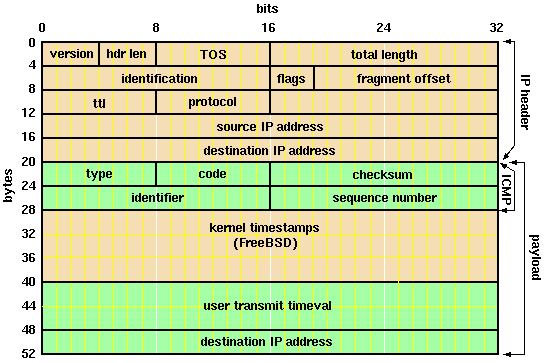Echo Request with Incrementing TTL
Below is a picture of the ICMP echo request sent by skitter The fields we fill from application space:- user transmit timeval in the payload
- destination IP address in the payload
-
ttl in the header (via
setsockopt(fd,IPPROTO_IP,IP_TTL,...)) - all of the ICMP header fields (type, code, checksum, identifier and sequence number)


